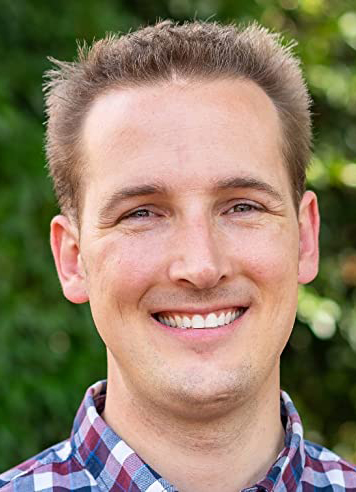
 Fathers, do not provoke your children to anger, but bring them up in the discipline and instruction of the Lord (Eph. 6:4).
Fathers, do not provoke your children to anger, but bring them up in the discipline and instruction of the Lord (Eph. 6:4).
I’ve heard it said that a new father has lots of opinions and no experience, and one with grown children has lots of experience and few opinions. My oldest child is 10, so I suppose I’m halfway there. Some days it seems the only sign of accumulating experience is that my confidence about how to parent steadily drains away.
For me, in being both a pastor and a father, an unnervingly common experience is having no idea what to do. To a married couple locked in years-long trench warfare, what can I say that will not trigger a landmine? At home, a property dispute breaks out over which small human may legitimately claim this Lego figure or that half of the couch. Each makes a seemingly airtight case. Your move, Dad.
Parenting and character training
Scripture’s instructions to fathers are simple, but that does not make them easy. “And these words that I command you today shall be on your heart. You shall teach them diligently to your children, and shall talk of them when you sit in your house, and when you walk by the way, and when you lie down, and when you rise” (Deuteronomy 6:6–7).
“Fathers, do not provoke your children to anger, but bring them up in the discipline and instruction of the Lord” (Ephesians 6:4). The charge is clear: disciple your kids.
Parents and pastors have the same mission, though their starting points and contexts differ. The business of both is making disciples. And one of the best ways you can prepare to pastor and grow as a pastor is by pastoring your children.
If you are married, desire to be a pastor, do not yet have children, and are actively putting off having children, you might want to rethink the logic of that position. Especially if you are putting off children so that you can prepare for ministry. I am not laying this down as an ironclad rule. My “might” three sentences back is genuine; exceptions exist. If you move to seminary at 22 years old, newly married, with a wife who is willing to support you financially for a time, it might be good stewardship to seek to delay children for that season, or part of it. If you do, watch out for the burdens that will lay on your wife. Still, in general and all things being equal, a man who is a father is more ready to pastor than a man who is not. Of course, the equation differs for couples who struggle with infertility, which is its own test of a man’s ability to shepherd.
Parenting enrolls you in full-time training for your character and competence as a leader.
Before I became a father, I would not have said I have a problem with anger. Raising four children has disabused me of that illusion. I am not naturally a patient person, and I would not say that prior to having children I had made any great progress in the virtue. How patient am I now? Who knows. Not as patient as I should be. But if I now have at least a small flour-sack of patience in the pantry of my character, most of it has been ground, grain by grain, by the millstone of parenting. As for competence as a leader, being a father requires you to provide, protect, oversee, manage, mediate, reconcile, teach, train, model, explain, and correct – and that’s just in the hour before bed.
Like pastoring, parenting is a weight you can never fully shrug off. Like pastoring, parenting requires you to enter into experiences that differ drastically from yours, and to bear emotional burdens that would otherwise remain remote. Like pastoring, parenting plugs you into all the high highs and low lows of lives other than your own. Parenting at once shrinks your world and vastly expands it. Children change you in ways you did not know you needed to be changed.
Like church members, children have eagle eyes for inconsistency and hypocrisy. Like church members, children are far more likely to do what you do than do what you say. As James Baldwin wrote, “Children have never been very good at listening to their elders, but they have never failed to imitate them.”1
Discipling your children
How can you pastor your children?
Continually teach them God’s Word. Lead them in family devotions. Short, frequent, and flexible is better than idealistic and inconsistent. Over the years, our family’s approach has steadily morphed. We started with story Bibles, memory verses, and children’s catechisms. We have memorized short psalms and longer chapters of Scripture. Over the past few years, we have focused on simply reading Scripture sequentially, followed sometimes by brief discussion, and more regularly by prayer based on the passage. Sometimes, the older children and Kristin and I take turns reading and praying aloud; often, I simply lead both. If we have time, we sing a verse or two of a hymn.
We have found that breakfast offers the most regular window for our main time of family worship. Our kids tend to be fresher and calmer at breakfast than they are at bedtime. For at least a few minutes while they eat, they are a captive audience. And ministry obligations virtually never pressure our breakfast window, whereas they often compress our evenings. My point is not to say you should do what we do, but simply to get your wheels turning. When it comes to family devotions, just about anything is better than nothing.
Finally, attend to your children individually. Learn their temperaments, tendencies, and typical temptations. Convert your knowledge of their strengths and weaknesses into compassion. “As a father shows compassion to his children, so the Lord shows compassion to those who fear him. For he knows our frame; he remembers that we are dust” (Psalm 103:13–14). Learn to adapt your counsel to their constitutions. As much as you can, as often as you can, give each of them your undivided, delighted attention. Learn to love what they love because you love them.
One wise father of several grown children recently told me that, when his kids were growing up, he wanted his attitude toward each of them, and the quality of time he spent with them, to convince each of them that they were his favorite.
Bobby Jamieson (Ph.D., University of Cambridge) serves as an associate pastor of Capitol Hill Baptist Church in Washington, D.C. Content adapted from The Path to Being a Pastor by Bobby Jamieson ©2021. Used by permission of Crossway.























